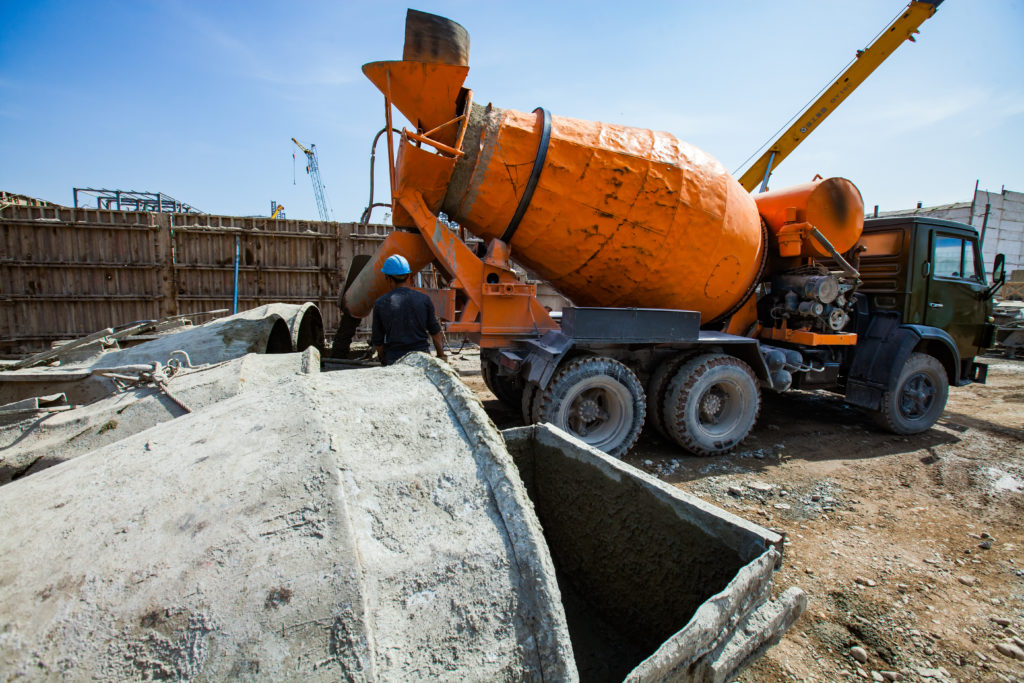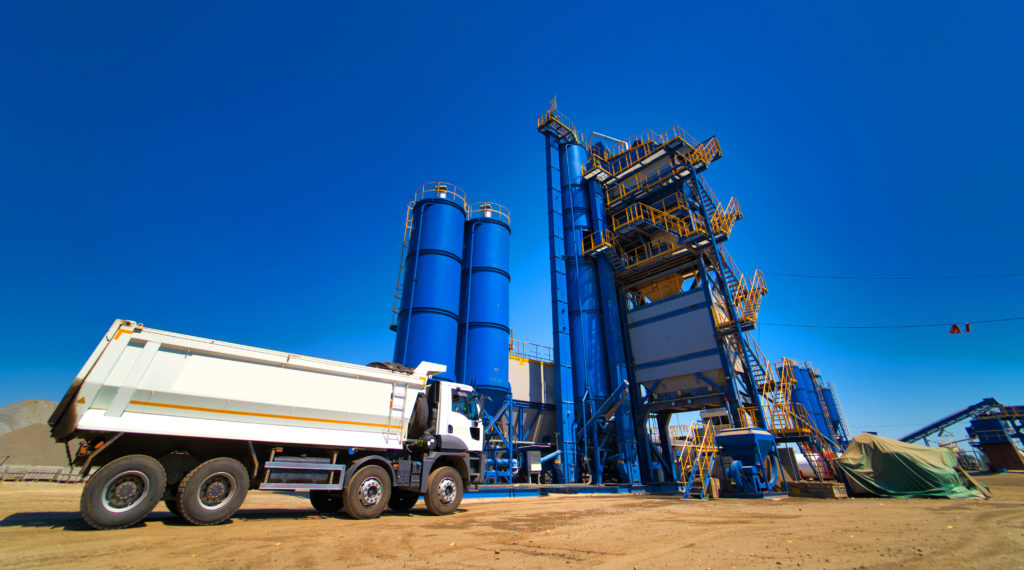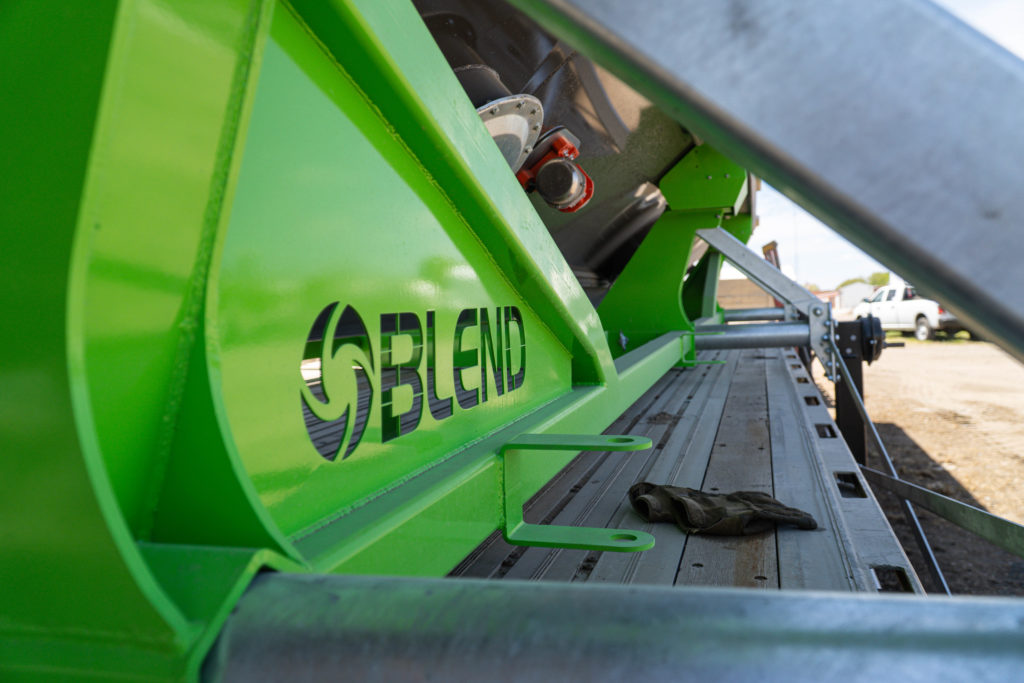Self-Loading Mobile Concrete Plants vs. Traditional Plants
When it’s time for the concrete to arrive at a project site, there are two ways for contractors to get it there—transporting it from a stationary concrete plant or bringing the whole mixing operation along using fully mobile concrete plants.
Depending on the size and scope of your project there are different factors you should take into consideration when choosing between these two options.
Keep reading to learn about the difference between self-loading mobile concrete plants vs. stationary plants and to find out what projects they’re best for!
What is a Self-Loading Mobile Concrete Plant?
A self-loading mobile concrete plant has the same functionality as a fixed concrete mixing plant, but it can be transported freely to worksites by either truck or rail. It loads aggregates, weighs batches, blends the concrete, and pours it—all on-site.
Self-loading mobile concrete plants can be operated by one or two people, meaning they provide much more streamlined timelines compared to a fixed concrete plant that requires a whole staff of people running it.
These types of concrete mixing machines are on the rise, as they allow more on-site control of the mixing process and can reduce costs over time.
Mobile concrete plants like the ones Blended Equipment Solutions provide can be mounted on a truck chassis, pulled behind a semi, or moved by railway, meaning they can be taken pretty much anywhere.

Features of Self-Loading Mobile Concrete Plants
One of the important features of a self-loading mobile concrete plant is its easy operation. It can be operated by one or two people, with the ability to mix a variety of products for different applications.
These plants are best suited for projects that require mobility, speed, accuracy, and minimal waste. These projects can range in size anywhere from a driveway to a parking garage.
Mobile concrete plants also allow a great deal of control. The operators can produce:
- Concrete
- Cold asphalt
- Cementitious mixtures
- Colored concrete
- Roller compacted concrete
- & Soil stabilization
In fact, these machines contain technology that automatically weighs and measures the aggregate materials to make each of these products according to project specifications.
Here are some additional features of mobile concrete plants that contractors can look forward to as well:
- A self-loading mobile concrete plant doesn’t need heavy or special equipment like cranes to move or set up. It’s able to be driven directly to the worksite.
- Since production takes place on-site, time and costs are reduced.
- The automated mixing system can be remotely controlled so that the operators don’t have to be next to the machine at all times.
- Self-loading mobile concrete plants can be paired with mobile horizontal silos for the most portable setup.
- Mobile concrete plants are less wasteful, as they only create the exact amount of concrete needed for each project on-site. If there is leftover concrete, it can be repurposed on-site using Betonblock molds.
Overall, self-loading mobile concrete plants are multi-functional, highly agile, easy to operate and control, and save both contractors and end-customers time and money—all while helping to reduce waste.
What is a Traditional Stationary Concrete Plant?
A traditional stationary concrete plant is pretty much summed up by its name. It’s a large, permanent facility that exists with the sole purpose of mixing different concrete batches for a variety of clients.
These plants are built to offer maximized output and can be especially useful for large-scale infrastructure projects, especially ones that require pre-cast components.
Traditional stationary concrete plants are usually selected due to their mass production capabilities, high output, and versatility of both mixtures and products.

Features of Stationary Concrete Plants:
As mentioned above, the biggest selling point of stationary concrete plants is their mass production capability and high output.
This type of plant is best suited for projects that prioritize volume over mobility, like infrastructural ones previously mentioned.
Since these plants have full-time staff devoted specifically towards production, they can create a lot of mixtures and products quickly. These products can range from special concrete like concrete pipe and parquet to standard concrete, and everything in between. However, traditional stationary concrete plants require additional personnel and equipment to transport the end-product to the worksite.

Blended Equipment Solutions Provides Self-Loading Concrete Plants That Are Truly Mobile
From truck-mounted production plants to horizontal silos and more, Blended Equipment Solutions has the tools and training you need for optimal control over your projects.
Blended’s truck-mounted and truck-hauled production plants can be set up within one working day. That means they’re not just portable, they’re actually mobile.
The self-loading and self-mixing plants are capable of producing concrete, cementitious mixtures, mortar, and flowable fills, all while reducing overall waste.
In addition to mobile plants, Blended also offers horizontal silos, Betonblock molds, RCC pavers, rollers, pneumatic trailers, and pneumatic bulk. Plus, we’ll give you all the training you need to get your fully-mobile plant running to your exact specifications. To learn more about Blended Equipment Solutions or to schedule a product demo, be sure to visit our website or contact us!

